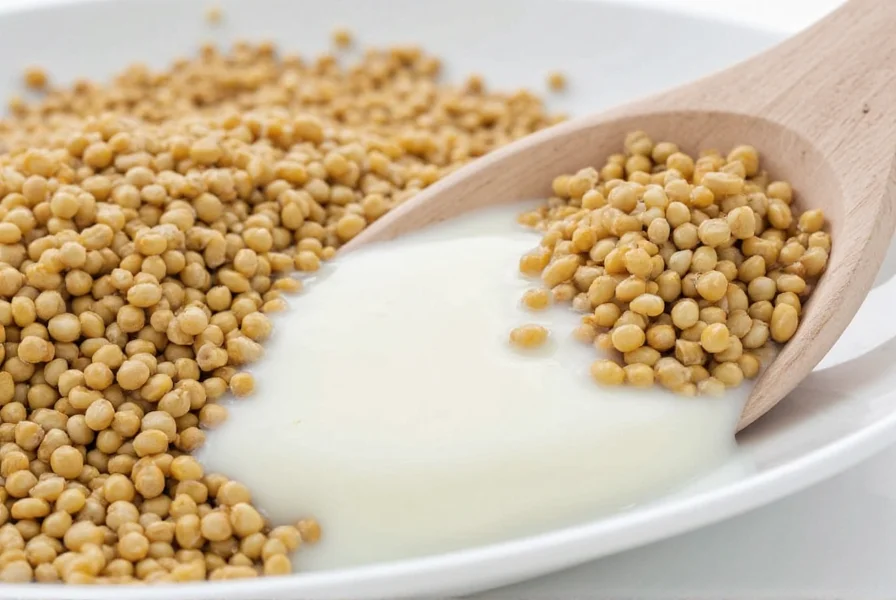Many breastfeeding mothers search for natural ways to boost their milk supply, and fenugreek frequently emerges as a popular option. As a galactagogue (substance believed to increase milk production), fenugreek has been used for centuries in traditional medicine. But what does modern science actually say about does fenugreek increase breast milk?
What the Research Says About Fenugreek and Milk Supply
Several clinical studies have examined fenugreek's effectiveness as a lactation aid, though research remains limited in scope and quality. A 2011 study published in the Journal of Alternative and Complementary Medicine found that mothers taking fenugreek capsules produced significantly more milk than the control group after 72 hours. However, this study involved only 25 participants.
Conversely, a more rigorous 2018 randomized controlled trial in the International Breastfeeding Journal with 104 participants found no statistically significant difference in milk production between women taking fenugreek and those receiving a placebo. This highlights the inconsistent evidence surrounding fenugreek effectiveness for increasing breast milk.
| Research Study | Participants | Findings on Fenugreek | Study Quality |
|---|---|---|---|
| 2011 Journal of Alt Med | 25 | Significant milk increase after 72 hours | Small sample size, limited controls |
| 2018 Int'l Breastfeeding Journal | 104 | No significant difference vs. placebo | Larger sample, better methodology |
| 2020 Systematic Review | Multiple studies | Inconclusive evidence, need for more research | Comprehensive analysis |
How Fenugreek Might Work as a Galactagogue
Fenugreek seeds contain compounds that may stimulate milk ducts and increase sweat production, which some researchers believe could extend to mammary glands. The herb's high phytoestrogen content might also play a role in fenugreek impact on breast milk production. However, the exact mechanism remains unclear, and more research is needed to confirm these theories.
Traditional use of fenugreek for lactation spans centuries across multiple cultures, but anecdotal success doesn't equate to scientific proof. Many mothers report positive experiences with fenugreek for low milk supply, though placebo effects and natural fluctuations in milk production complicate these personal accounts.

Safety Considerations and Potential Side Effects
While generally considered safe for short-term use during breastfeeding, fenugreek can cause side effects in both mother and baby:
- For mothers: Maple syrup-like body odor, gastrointestinal discomfort, allergic reactions (especially if sensitive to peanuts or chickpeas)
- For babies: Possible fussiness, gassiness, or allergic reactions
Women with diabetes should exercise caution as fenugreek can lower blood sugar. Those with thyroid conditions or taking blood thinners should consult their healthcare provider before using fenugreek supplements. The safety of fenugreek while breastfeeding remains an important consideration that many mothers overlook when seeking quick solutions for low milk supply.
Practical Guidance for Breastfeeding Mothers
If considering fenugreek for lactation support, keep these evidence-based recommendations in mind:
- Start with a low dose (typically 1-2 capsules 3 times daily) and monitor for side effects
- Allow 24-72 hours to assess potential effects on milk production
- Discontinue use if no improvement after 1-2 weeks or if side effects occur
- Combine with evidence-based lactation techniques like frequent nursing/pumping
Remember that fenugreek not working for increasing breast milk is common - many factors influence milk supply, including proper latch, feeding frequency, maternal health, and stress levels. Fenugreek shouldn't replace addressing underlying issues affecting milk production.
Evidence-Based Alternatives to Fenugreek
Before turning to supplements, consider these research-supported approaches to increase milk supply:
- Frequent nursing/pumping: 8-12 sessions every 24 hours signals increased production needs
- Skin-to-skin contact: Boosts prolactin levels and improves feeding effectiveness
- Professional lactation support: IBCLCs can identify and address feeding issues
- Medication options: Prescription galactagogues like domperidone (under medical supervision)
When exploring natural ways to increase breast milk without fenugreek, focus on evidence-based methods first before considering supplements with limited research backing.
When to Consult a Healthcare Professional
Consult a lactation specialist or healthcare provider if:
- Your baby isn't gaining weight appropriately
- You've tried evidence-based methods for 2 weeks with no improvement
- You experience significant side effects from fenugreek
- You have underlying health conditions that might affect milk production
Professional guidance remains essential when addressing low breast milk supply solutions, as what works for one mother may not work for another. A healthcare provider can help determine if fenugreek or other interventions might be appropriate for your specific situation.
Conclusion: Making Informed Decisions About Fenugreek
The question does fenugreek increase breast milk doesn't have a simple yes-or-no answer. Current evidence suggests it may help some women but not others, with research remaining inconclusive. Rather than viewing fenugreek as a guaranteed solution, consider it one potential option among many evidence-based approaches to support lactation.
Every breastfeeding journey differs, and what works for one mother might not work for another. Prioritize evidence-based lactation techniques first, consult healthcare professionals before starting supplements, and remember that adequate milk supply depends on multiple factors beyond any single herb or supplement.
Frequently Asked Questions
How quickly does fenugreek work to increase breast milk?
Some mothers report increased milk production within 24-72 hours of starting fenugreek, while others see no effect after several weeks. Research shows highly variable response times, with approximately 50-75% of women noticing some improvement if it works for them. However, scientific evidence supporting these timelines remains limited.
What's the recommended fenugreek dosage for breastfeeding mothers?
Most lactation specialists recommend starting with 1-2 capsules (580-610 mg each) three times daily. Some mothers gradually increase to 3 capsules three times daily if no side effects occur and no improvement is seen after 3 days. Never exceed 6 grams daily without medical supervision. Always consult your healthcare provider before determining the appropriate fenugreek dosage for increasing breast milk.
Can fenugreek decrease milk supply in some women?
While rare, some women report decreased milk production after taking fenugreek. This might occur if the herb causes significant gastrointestinal discomfort that affects hydration or nutrition, or if it triggers an allergic reaction. More commonly, fenugreek simply doesn't work for certain individuals. If you notice decreased milk supply after starting fenugreek, discontinue use and consult a lactation specialist.
Are there any long-term risks of taking fenugreek while breastfeeding?
Limited research exists on long-term fenugreek use during breastfeeding. Most healthcare providers recommend using it only short-term (2-4 weeks) to assess effectiveness. Prolonged use might lead to tolerance (needing higher doses for same effect) or potential nutrient interactions. The safety of fenugreek for extended breastfeeding periods hasn't been thoroughly studied, so medical supervision is advised for continued use beyond one month.
What are the best alternatives to fenugreek for increasing milk supply?
Evidence-based alternatives include frequent nursing/pumping (8-12 times daily), skin-to-skin contact, proper hydration and nutrition, and working with an IBCLC to address latch issues. Prescription options like domperidone (under medical supervision) show stronger evidence than herbal supplements. Other herbs sometimes used include blessed thistle and alfalfa, though research on these is similarly limited. Always prioritize addressing underlying causes of low supply before turning to supplements.











 浙公网安备
33010002000092号
浙公网安备
33010002000092号 浙B2-20120091-4
浙B2-20120091-4